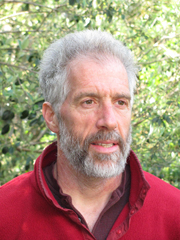Air pollution plagues society in many countries around the world. It ranges from indoor air pollution at the smallest scale, through urban and regional smog, to global climate change and stratospheric ozone depletion. Our research focuses on understanding the atmospheric processes that transport and transform particulate pollutants between their emission and their reception. Experimental, numerical, and theoretical approaches are employed. Focus is on urban and regional smog, and global climate change.
Instrument Development and Experimental Studies
- Low-Cost Instruments for Measuring the Chemical Composition of Atmospheric Gases and Particles
- Early Wildfire Detection
- Health Effects of Traffic-Related Air Pollution
- Aerosol Thermodynamics
Modeling and Numerical Studies
- Ambient Aerosol Processes
- Aerosol Thermodynamics: The E-AIM Model
- Applying Physics Informed Neural Networks (PINN) to Air Pollution Modeling
Theoretical Studies
- Aerosol Thermodynamics
- Time Scale Analysis
- Growth Scale Analysis
Biomedical Engineering Research
A long-standing interest of our group is employing engineering methods and principles to the understanding of physiological systems. Currently we work on deposition of aerosol particles in human airways and dynamic response of muscles to functional stimulation. Previous enveadors have included work on the urine concentrating mechanism in the renal medulla.
- Renal Concentrating Mechanism
- Airway Shape and Deposition of Aerosol Particles
- Muscle Dynamics in Functional Electrical Stimulation





